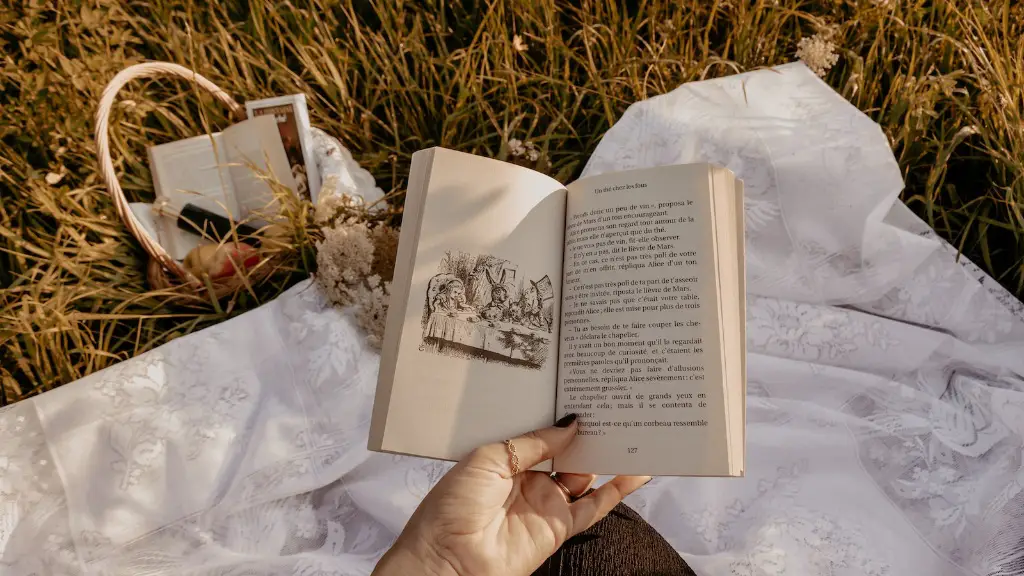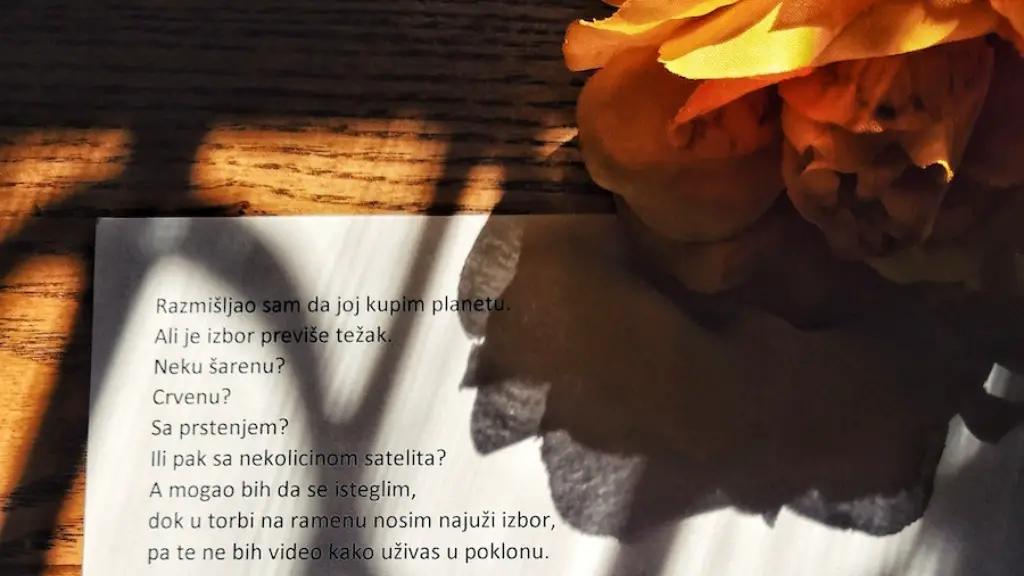Langston Hughes and Zora Neale Hurston were two renowned African-American authors of the early 20th century. Hurston’s works focused primarily on the African-American experience, while Hughes drew inspiration from his own life to capture the social and political struggles of African-Americans during the time. Despite their differences in style, both authors sought to highlight the importance of being self-aware, the social alienation and disparities experienced by African-Americans and the power of reclaiming their cultural heritage.
The themes of self-awareness and cultural identity are especially evidenced in the works of Langston Hughes. From The Weary Blues to Montage of a Dream Deferred, Hughes wrote of the importance of being aware of one’s place in the larger world. In this regard, he emphasized being conscious of both the individual and collective struggles of African-Americans. As he wrote in his poem The Negro Artist and the Racial Mountain: “O let my limbs be beautiful, for I am a black poet.”
Similarly, Zora Neale Hurston wrote of the power of connecting to one’s past and culture. Hurston, who was an anthropologist in addition to a writer, told stories of African-Americans that explored issues of identity and community. In her book Their Eyes Were Watching God, Hurston focuses on the importance of community and family connections, and the power of reclaiming lost ones. Through her main character Janie Crawford, Hurston conveys the idea that, in spite of the racism, sexism and even violence that African-Americans faced, it was still possible to find self-confidence and strength in one’s own past.
The themes of alienation and displacement ran throughout both Langston Hughes and Zora Neale Hurston’s works. Langston Hughes addressed the issue of alienation through his works like Harlem and I, Too, Sing America, which explore the feeling of alienation experienced by African-Americans in the United States. Through these works, he highlighted the social, economic and political tensions experienced by African-Americans and the negative effects of racism and discrimination.
Zora Neale Hurston also explored the idea of displacement in her writings. Her books, such as Their Eyes Were Watching God, Mule Bone, and Jonah’s Gourd Vine, focus on the experiences of African-Americans in the South, which were often characterized by displacement, poverty and violence. Through her stories, Hurston sought to capture the emotions of those who were facing extreme hardship, and the resilience and strength of African-American culture in spite of the difficulties it faced.
The Power of Expression
Langston Hughes and Zora Neale Hurston also wrote about the power of expression. Through his works, Hughes sought to capture the African-American voice and to express the struggle of those who faced discrimination and racism in the United States. As he wrote in his poem The Negro Speaks of Rivers, Hughes highlighted the importance of speaking out and having one’s voice heard:
My soul has grown deep like the rivers.
I bathed in the Euphrates when dawns were young.
I built my hut near the Congo and it lulled me to sleep.
I looked upon the Nile and raised the pyramids above it.
I heard the singing of the Mississippi when Abe Lincoln went down to New Orleans.
Through her writing, Zora Neale Hurston sought to capture the voices of African-American women who faced various forms of sexism and oppression. Through her stories, Hurston highlighted the importance of speaking out and reclaiming one’s voice in order to find strength and courage. As she wrote in her book Their Eyes Were Watching God: “Ships at a distance have every man’s wish on board. For some they come in with the tide. For others they sail forever on the horizon, never out of sight, never landing until the Watcher turns his eyes away in resignation, his dreams mocked to death by Time. That is the life of men.”
The Symbolism of Nature
Langston Hughes and Zora Neale Hurston also used the symbolism of nature to explore themes of identity, alienation and displacement. Langston Hughes often used the imagery of rivers and other natural elements in his works to explore these themes. For example, in his poem The Negro Speaks of Rivers, Hughes used the imagery of rivers and oceans to show how African-Americans were connected to the history and struggles of their African ancestors, and to emphasize the importance of self-awareness and expression. Similarly, in her book Their Eyes Were Watching God, Zora Neale Hurston used the imagery of trees and storms to emphasize the necessity of finding strength by connecting to one’s past and reclaiming one’s culture. Through these metaphors, both authors sought to highlight the importance of being aware of one’s place in the larger world and the power of reclaiming one’s heritage.
The Impact of War and Migration
Both Langston Hughes and Zora Neale Hurston explored the impact of war and migration in their works. In his writings, Hughes highlighted the effects of World War I on African-Americans and their struggle for self-determination. He also explored the issue of migration, focusing on the experiences of African-Americans who moved from the South to the North in search of a better life. Similarly, Zora Neale Hurston wrote about the impact of war and migration on African-Americans in her novels and short stories. In Their Eyes Were Watching God, for example, Hurston explored the effects of migration on characters like Janie Crawford, who moves from the South to the North in search of a better life, only to find that change can be both difficult and rewarding.
Criticism and Censorship
Both Langston Hughes and Zora Neale Hurston faced criticism and censorship during their time due to their open and honest discussion of the African-American experience in the United States. Hughes was criticized for his outspokenness, and his works were often censored and banned. Hurston was also criticized for her frank portrayal of African-American characters and for her refusal to adhere to racial stereotypes. Despite this criticism, both Hughes and Hurston refused to silence their voices and remained steadfast in their belief that African-Americans deserved to be heard and respected, even in the face of censorship and racism.
Legacy
Today, Langston Hughes and Zora Neale Hurston are remembered as two of the most important African-American authors of the 20th century. Their works continue to inspire and educate readers on the importance of self-awareness and pride, while also highlighting the unique experience of African-Americans in the United States. Through their writings, Hughes and Hurston sought to capture the struggles and triumphs of African-Americans in their time, and to emphasize the necessity of expressing one’s own identity and culture.
Literary Representation
The writings of Langston Hughes and Zora Neale Hurston have had a lasting impact on the African-American literary canon. Hughes and Hurston were two of the first African-American writers to explore issues of identity, race, and racism in a contemporary setting. As such, they were pioneers in writing stories from the African-American perspective, giving visibility to issues that were often overlooked or ignored in mainstream literature. Their work has opened the door for future generations of African-American authors, and inspired readers to speak out and tell their own stories.
Influence on Contemporary Literature
The influence of Langston Hughes and Zora Neale Hurston can still be felt in contemporary African-American literature. Writers such as Toni Morrison, Alice Walker, and Edwidge Danticat have all drawn inspiration from the works of Hughes and Hurston. Their stories often explore similar themes such as self-discovery, identity, and social justice. In doing so, they seek to capture the African-American experience and to emphasize the importance of speaking out and reclaiming one’s voice, even in the face of adversity.




